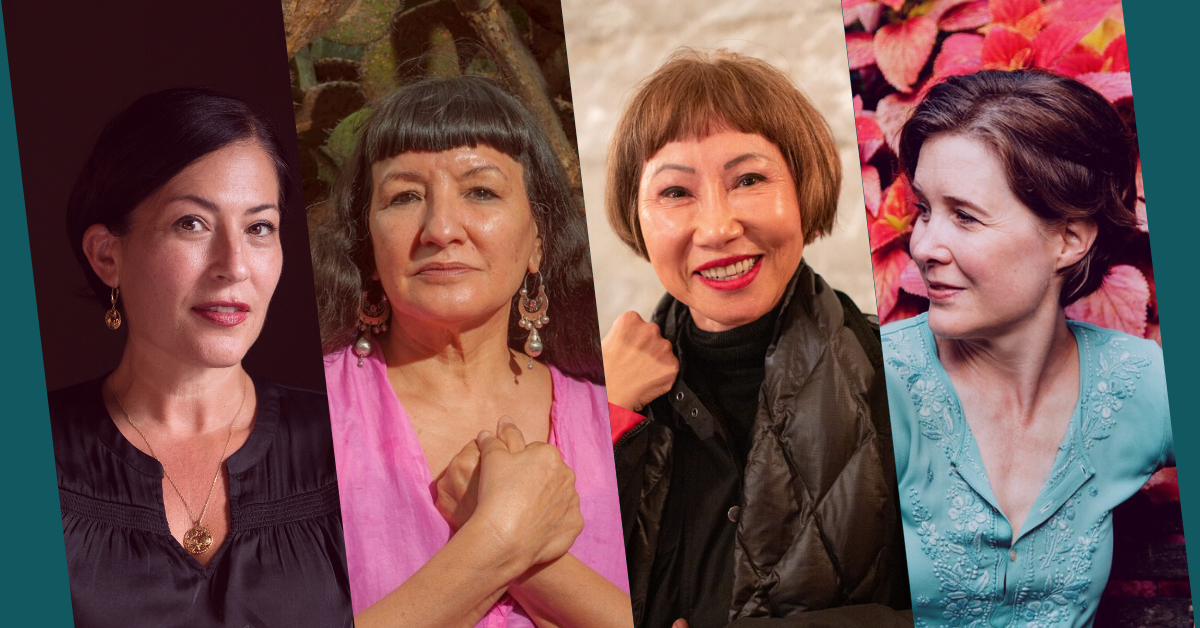A collection of contemporary authors who have written about life without children, whether by choice or circumstance
by Nicole Louie
What have modern-day authors written about living without children? Nicole Louie shares a collection of quotes and portraits exploring ten women writers who turned to the page to share their experience of not having children (by choice or circumstance).
Ann Patchett (b. 1963)
American author, New York Times bestseller, and owner of the independent bookstore Parnassus Books
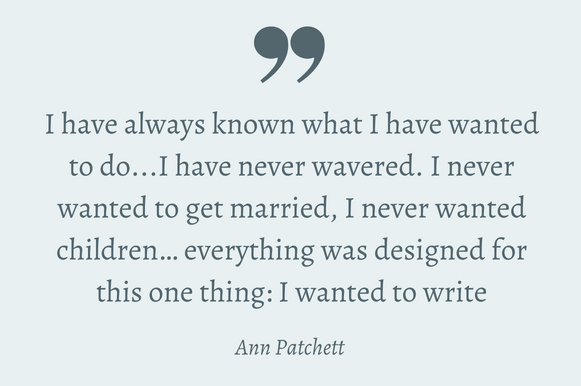

“The thing in my life that is most extraordinary is that I have always known what I have wanted to do…I have never wavered. I never wanted to get married, I never wanted children, I never wanted to be rich, I never wanted a big house… everything was designed for this one thing: I wanted to write.”
“People want you to want what they want. If you want the same things they want, then their want is validated. If you don’t want the same things, your lack of wanting can, to certain people, come across as judgment.”
“Part of not wanting children has always been the certainty that I didn’t have the energy for it, and so I had to make a choice, the choice between children and writing. The first time it occurred to me that I wouldn’t have both, I was still years away from being biologically capable of reproduction. History offers some examples of people who’ve done a good job with children and writing, I know that, but I wasn’t one of those people. I’ve always known my limitations. I lacked the units of energy, and the energy I had, I wanted to spend on my work. To have a child and neglect her in favor of a novel would be cruel, but to simply skip the child in favor of a novel was to avoid harm altogether.”
“To have a child required the willful forgetting of what childhood was actually like; it required you to turn away from the very real chance that you would do to the person you loved most in the world the exact same thing that was done to you. No, no thank you.”
Excerpts from These Precious Days (2021)
Sandra Cisneros (b. 1954)
Award-winning American poet, short story writer, novelist, essayist, performer, and artist
“If you can’t control your fertility, you can’t control your destiny. No wonder Church, State, and Family want to keep you in the dark. […] La Lupe was damn dangerous, an ideal so lofty and unrealistic it was laughable. Did boys have to aspire to be Jesus? I never saw any evidence of it. They were fornicating like rabbits while the Church ignored them and pointed us women toward our destiny—marriage and motherhood. The other alternative was putahood. […] As far as I could see, la Lupe was nothing but a Goody-Two-Shoes meant to doom me to a life of unhappiness. Thanks, but no thanks. Motherhood and/or marriage were anathema to my career.”
“At first I listened sympathetically to their tales of woe, but after ten years the victims are still victims, women carrying their little gray cloud on a stick—the husband who left, or the one they won’t leave. And frankly I don’t want to hear about your kids. We make choices. I’m not going to blame you because I’m childless; true, there is no one to get in my way, but there is also no one there to hug me when I need to be hugged.”
Excerpts from A House of My Own: Stories from My Life (2015)
Other recommended books: The House on Mango Street (1984), and her subsequent short story collection, Woman Hollering Creek and Other Stories (1991)
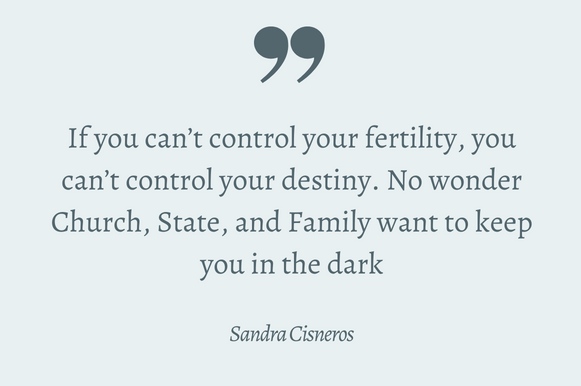
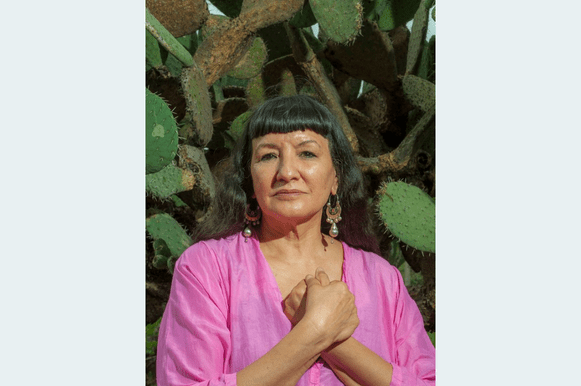
Rebecca Solnit (b. 1961)
American author of twenty books on feminism, western and indigenous history, and social change
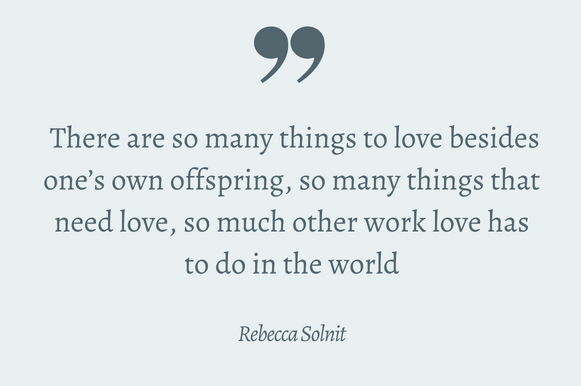
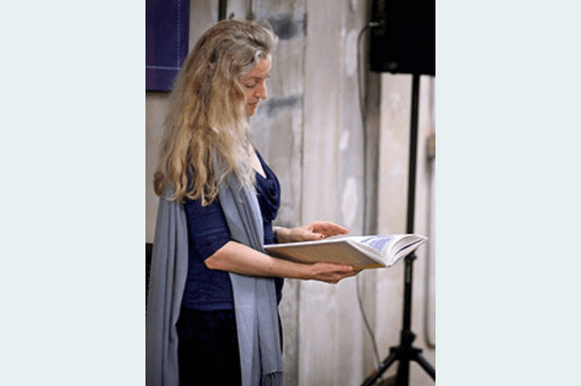
“People lock onto motherhood as a key to feminine identity in part from the belief that children are the best way to fulfill your capacity to love, even though the list of monstrous, ice-hearted mothers is extensive. But there are so many things to love besides one’s own offspring, so many things that need love, so much other work love has to do in the world.”
“As it happens, there are many reasons why I don’t have children: I am very good at birth control; though I love children and adore aunthood, I also love solitude; I was raised by unhappy, unkind people, and I wanted neither to replicate their form of parenting nor to create human beings who might feel about me the way that I felt about my begetters; I really wanted to write books, which as I’ve done it is a fairly consuming vocation. I’m not dogmatic about not having kids. I might have had them under other circumstances and been fine — as I am now.”
Excerpts from The Mother of All Questions (2017)
Other recommended books: Men Explain Things to Me (2014)
Emilie Pine (b. 1977)
Professor of Modern Drama at University College Dublin, Ireland, and award-winning Irish author
“Famously, the trick to good writing is bleeding onto the page. I picture the male writer who coined this phrase, sitting at his typewriter, the blank sheet before him. What kind of blood did he imagine? Blood from a vein in his arm? Or a leg? Perhaps a head wound? Presumably it was not blood from a cervix. I have so much of this blood, this period blood, this pregnancy blood, this miscarriage blood, this not-pregnant-again blood, this perimenopausal blood. It just keeps coming and I just keep soaking it up. Stuffing bleached cotton into my vagina to stem the flow, padding my underwear, sticking on the night pads ‘with wings’, hoping not to leak on some man’s sheets, or rip off too much pubic hair with the extra-secure adhesive strips. Covering up with ‘period pants’, those unloved dingy underwear choices pulled out from the bank of the drawer every month. And all along, I was wrong. I should have been sitting down at my desk and spilling it across the page, a shocking red to fill the white.”
Excerpt from Notes to Self: Essays (2018)
“I miss the children I didn’t have. Some people get that and some don’t.”
Excerpt from the article on Emilie Pine in The Irish Times (2022)
Other recommended books: Ruth & Pen (2022), her debut novel about the grief of miscarriage and infertility
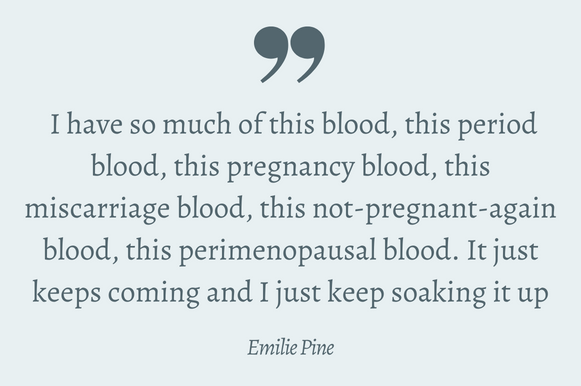
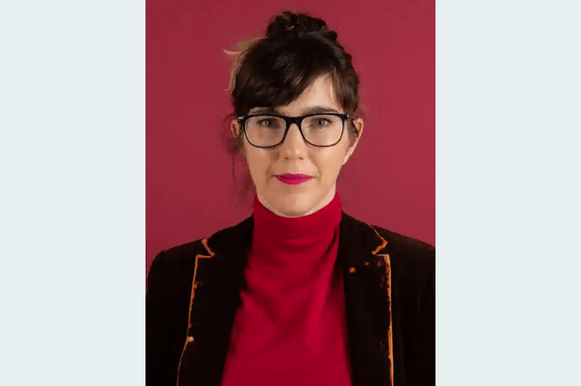
Amy Tan (b. 1952)
American author of multiple New York Times bestsellers, movie co-producer, and worldwide lecturer
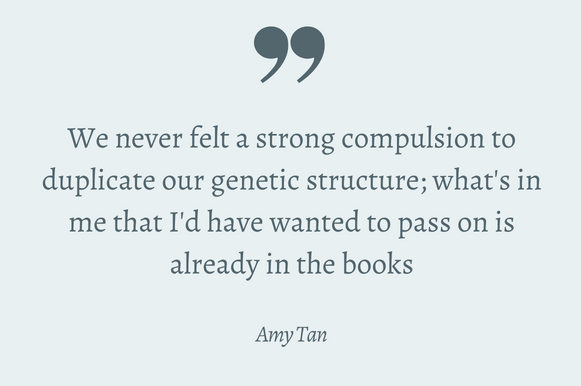
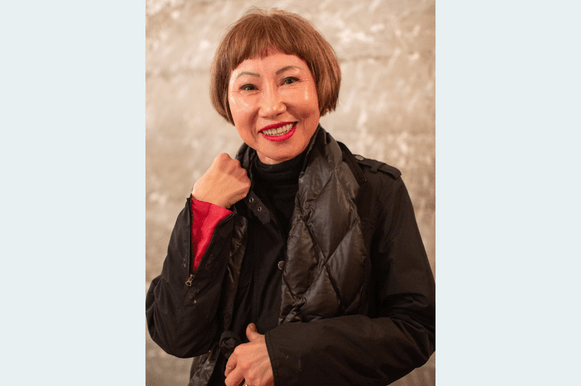
“My mother. I know what she felt about a woman’s right to choose. She told me when I was 28. We were sitting in my car about to go into a restaurant as rain pelted the windshield and I told her I was upset because I had just learned I was pregnant and that this occurred sometime during a two-week vacation when I had been consuming alcohol. A bloody Mary in the morning, a margarita at night. At the time, I worked in the field of developmental disabilities and babies were just then being diagnosed with a newly recognized congenital condition: fetal alcohol syndrome. It was not yet clear how much alcohol might be damaging or during which trimester it was consumed. Whatsmore, neither Lou nor I had the financial means to raise a child. He was still in Law school and he depended on my meager income to survive. Because of my profession, I knew full well what attention and extra time would be required to raise a child with the disability. I knew what I would have to fight for. I confessed to my mother: We were not even sure we wanted to have children. Lou’s parents often hinted about their desire for grandchildren. We couldn’t tell them we felt no need to pass along our custom DNA. Lou and I had already agreed that if we changed our minds, we would adopt a child with special needs. But now I was six weeks pregnant and I was forced to consider what to do.”
Excerpt from Where the Past Begins: A Writer’s Memoir (2017)
“We never felt a strong compulsion to duplicate our genetic structure; what’s in me that I’d have wanted to pass on is already in the books.”
Excerpt from The Guardian’s article Ghosts at my shoulder, by Maya Jaggi (2001)
MURATA Sayaka (b. 1979)
Award-winning Japanese novelist
“As long as you wear the skin of what’s considered an ordinary person and follow the manual, you won’t be driven out of the village or treated as a burden.”
“This society hasn’t changed one bit. People who don’t fit into the village are expelled: men who don’t hunt, women who don’t give birth to children. For all we talk about modern society and individualism, anyone who doesn’t try to fit in can expect to be meddled with, coerced, and ultimately banished from the village.”
“When something was strange, everyone thought they had the right to come stomping in all over your life to figure out why. I found that arrogant and infuriating, not to mention a pain in the neck. Sometimes I even wanted to hit them with a shovel to shut them up, like I did that time in elementary school. But I recalled how upset my sister had been when I’d casually mentioned this to her before and kept my mouth shut. (…) She’s far happier thinking her sister is normal, even if she has a lot of problems, than she is having an abnormal sister for whom everything is fine.”
Excerpt from Convenience Store Woman (2016)
“I was a tool for the town’s good, in two senses.
Firstly, I had to study hard to become a work tool.
Secondly, I had to be a good girl, so I could become a reproductive organ for the town.”
Excerpt from Earthlings (2018)
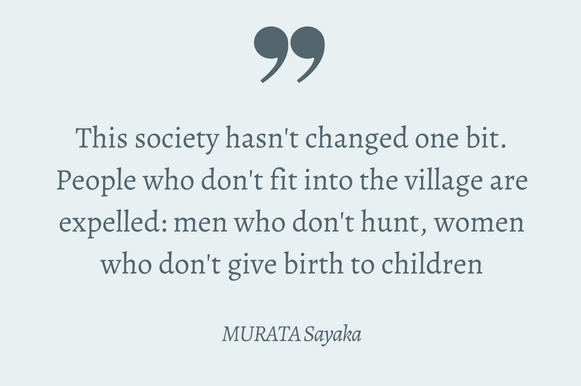
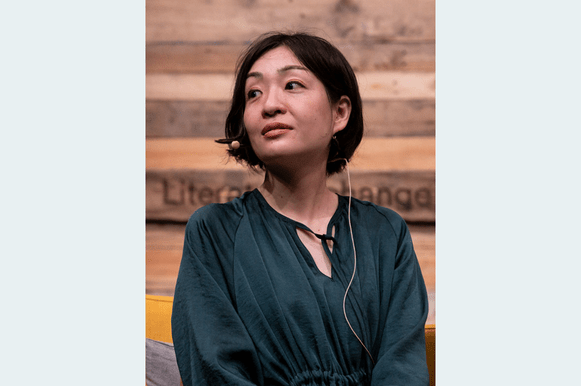
Ada Limón (b. 1976)
American poet, named the 24th U.S. poet laureate by the Library of Congress (2022)
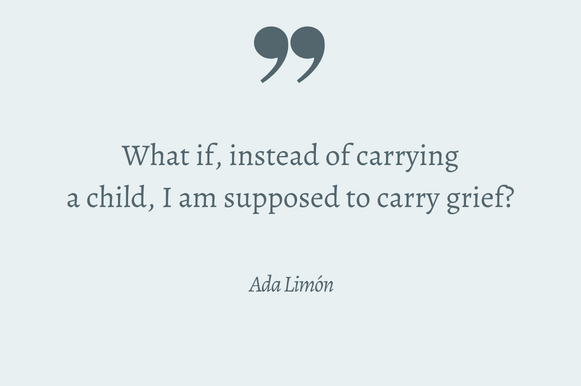
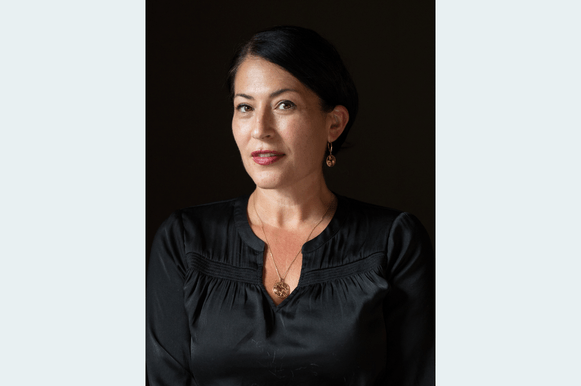
“We’ve known each other almost fifteen years, my friend
with eyes the color of a clear cenote. I trust him. He leans in,
tells me the real miracle, more than marriage, the thing that makes you
believe there might be a god after all, is the making of a child.
He stares at me, but I am not there anymore. I don’t say
we’ve tried a long time, been sad, been happy,
that perhaps the only thing I can make
is love and art.”
Excerpt from the poem “Mastering” in The Carrying (2018)
“What if, instead of carrying
a child, I am supposed to carry grief?”
Excerpt from the poem “The vulture and the body” in The Carrying (2018), which includes poems about her struggles (especially with fertility)
Sheila Heti (b. 1976)
Canadian author, named by The New York Times as one of fifteen writers who are shaping fiction in the 21st century
“I resent the spectacle of all this breeding, which I see as a turning away from the living – an insufficient love for the rest of us, we billions of orphans already living.”
“There is something threatening about a woman who is not occupied with children. There is something at-loose-ends feeling about such a woman. What is she going to do instead? What sort of trouble will she make?”
“Living one way is not a criticism of every other way of living. Is that the threat of the woman without kids? Yet the woman without kids is not saying that no woman should have kids, or that you-woman with a stroller- have made the wrong choice. Her decision about her life is no statement about yours. One person’s life is not a political or general statement about how all lives should be. Other lives should be able to exist alongside our own without any threat or judgment at all.”
Excerpt from Motherhood (2018)

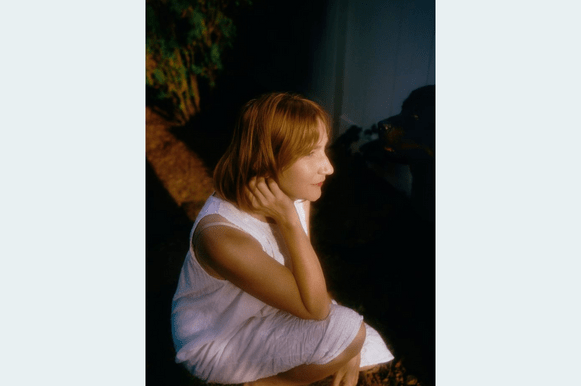
Molly Peacock (b. 1947)
American biographer and poet
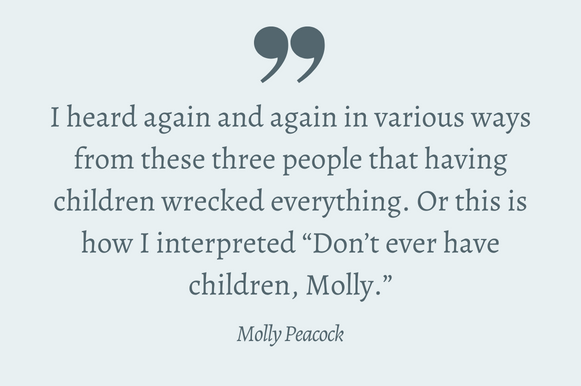
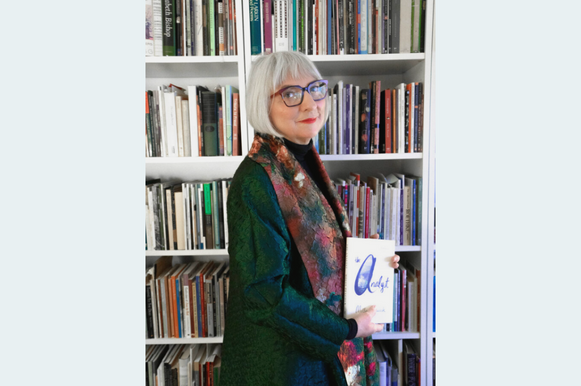
“Don’t ever have children, Molly, “my grandmother declared, “unless you want to.”
“That’s right. Don’t let nobody say you have to have kids,” her son affirmed.
I often heard from my father, “Don’t ever have children, Molly.” My grandmother punctuated this with “unless you want to.” And my mother said, “You can always do anything you want.”
I’m not sure other families discussed having children with their kids as frequently as mine did, but I heard again and again in various ways from these three people that having children wrecked everything. Or this is how I interpreted “Don’t ever have children, Molly.” (…)
Somehow at five, I was past childbearing age.
“We live in a pronatalist culture, so when you decide not to have children, you find yourself at the far edge of the bell curve. How do you live happily there? Well, you live happily there if you are comfortable with your own nature. And that requires talking about how to separate motherhood from female identity. It’s still a taboo subject — not even discussed in women’s studies programs. And endlessly fascinating to me, especially as the Census Bureau tells us we will be seeing increasing numbers of people making this decision.”
Excerpt from Paradise, Piece by Piece (1998)
Bernardine Evaristo (b. 1959)
British author, #1 Sunday Times bestseller, and current president of the Royal Society of Literature
“Penelope embarked on a campaign to lobby Giles for her return to work, who still insisted she remain at home sit was the natural order of things going back to time immemorial:
me hunter – you homemaker
me breadwinner – you bread-maker
me child maker – you child raiser”
Excerpt from Girl, Woman, Other (2019)
“My personal version represents creativity, family, freedom, community, ambition, self-fulfillment, leadership and much more, including the decision to be child-free, as opposed to ‘child-less’, which implies a thwarted ambition and a failure to fulfill my social obligation as a woman.”
Excerpt from NET-A-PORTER’s article Bernardine Evaristo On Womanhood: “I Refuse To Be Invisible (2020)
“I have long treated myself as something of a personal archival project, keeping quite extensive records so that the story of my life is not lost for future generations. Whether anyone will be interested is a moot point. Certainly, as someone who has always been child-free, there won’t be any descendants discovering their great-great-great grandma’s boxes in the attic. And my books may or may not be of interest after my lifetime, because who knows what the future will hold. Perhaps hundreds of years hence, a researcher will one day descend into the dusty basement of a library somewhere, should they still exist, discover my archive and want to bring the long-lost story of me into the light.”
Excerpt from Financial Times’s article How I spend it… Bernardine Evaristo on filing (2020)
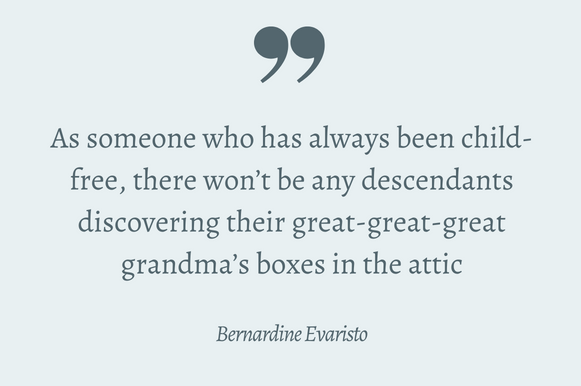
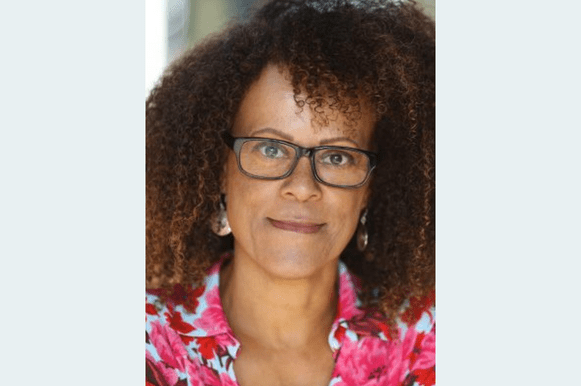

Nicole Louie is a writer, translator and content curator based in Ireland.
She is dedicated to finding and sharing the stories of amazing women without children online and in her upcoming non-fiction book. To view her other collections on childlessness, visit https://linktr.ee/nicolelouie.
For publishing inquiries, please contact her literary agent, Hannah Schofield from LBA Books at Hannah[at]lbabooks.com

